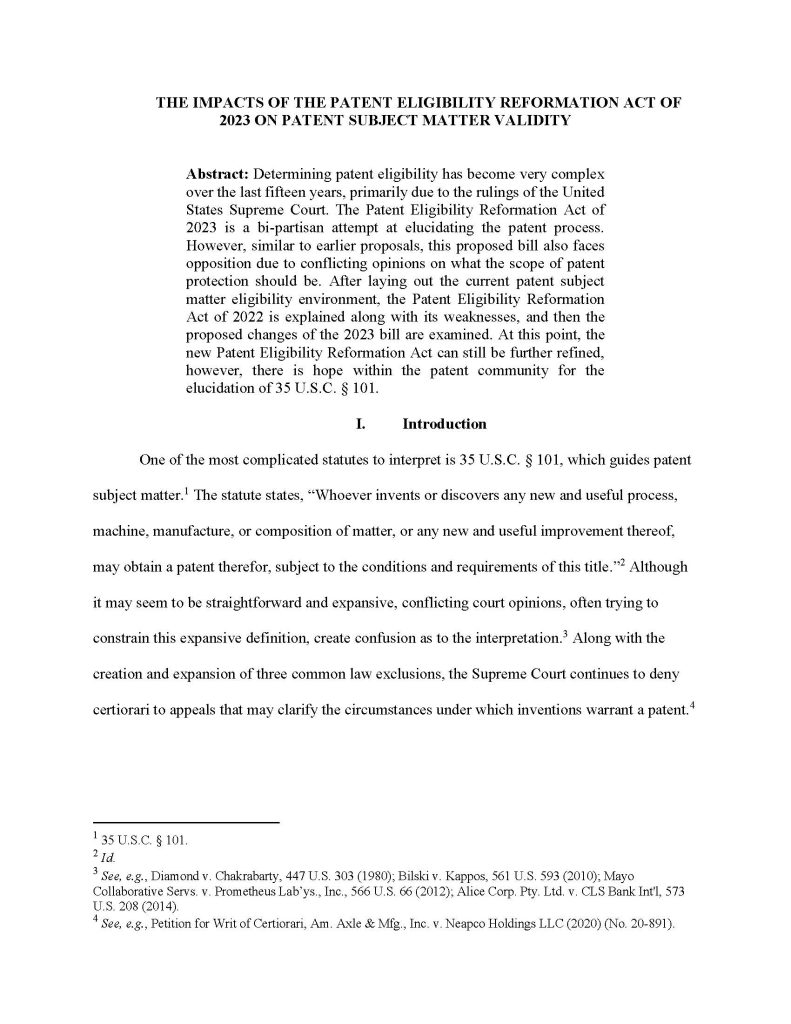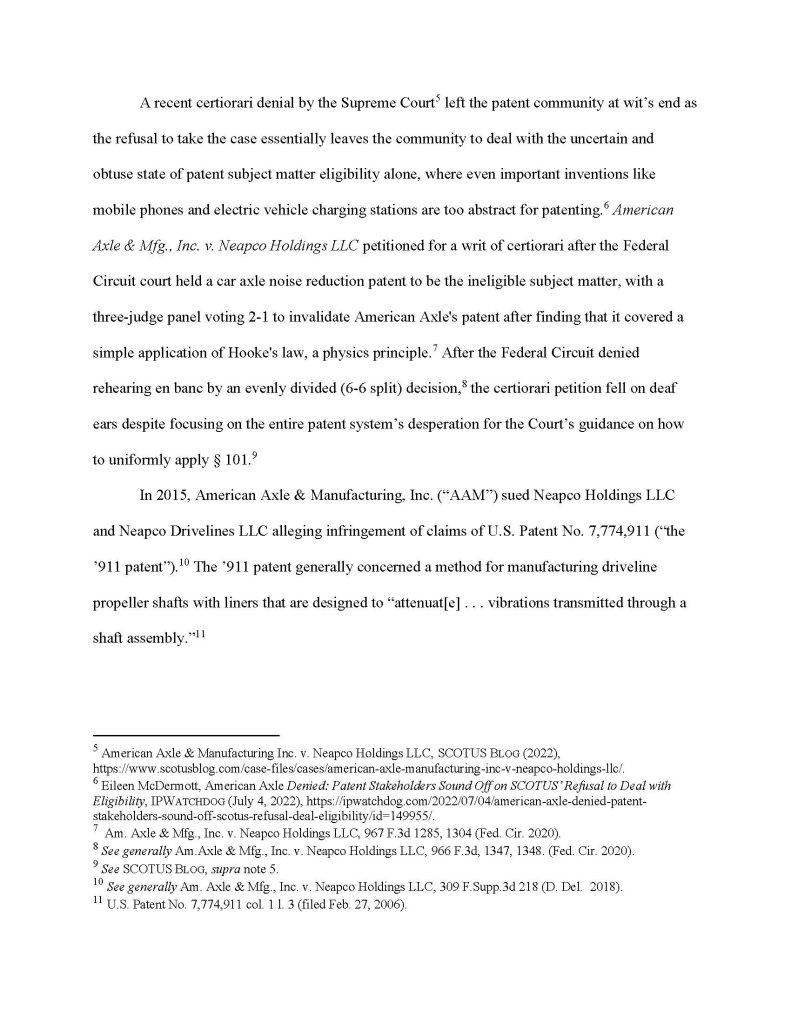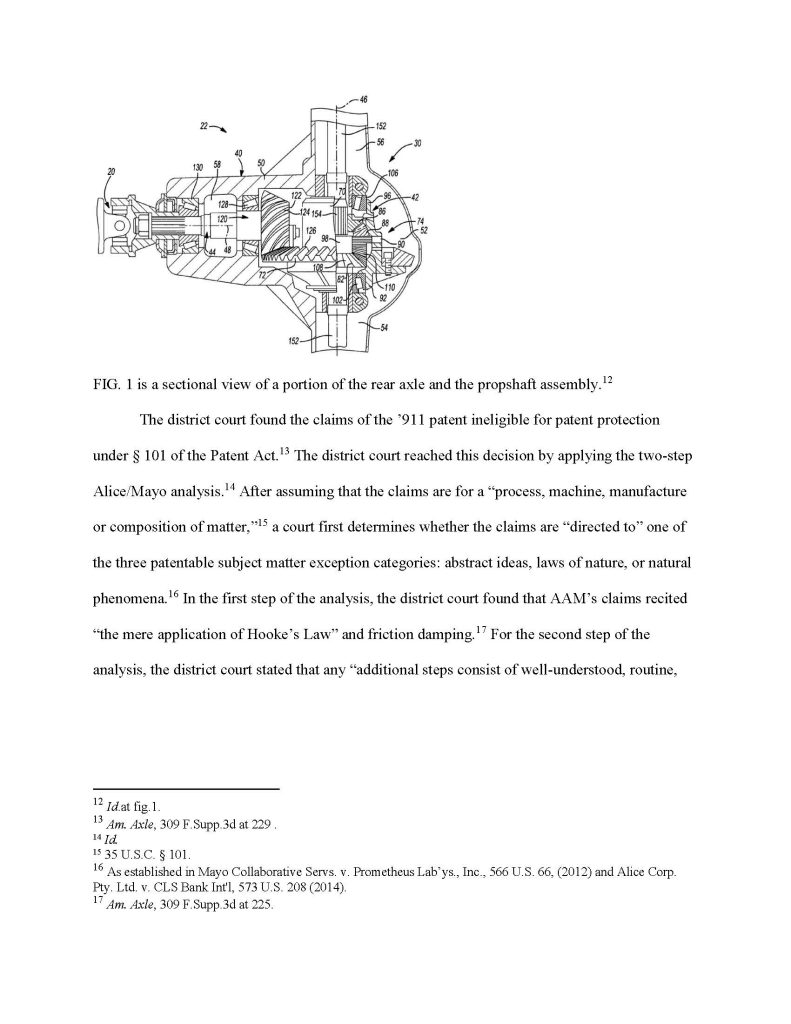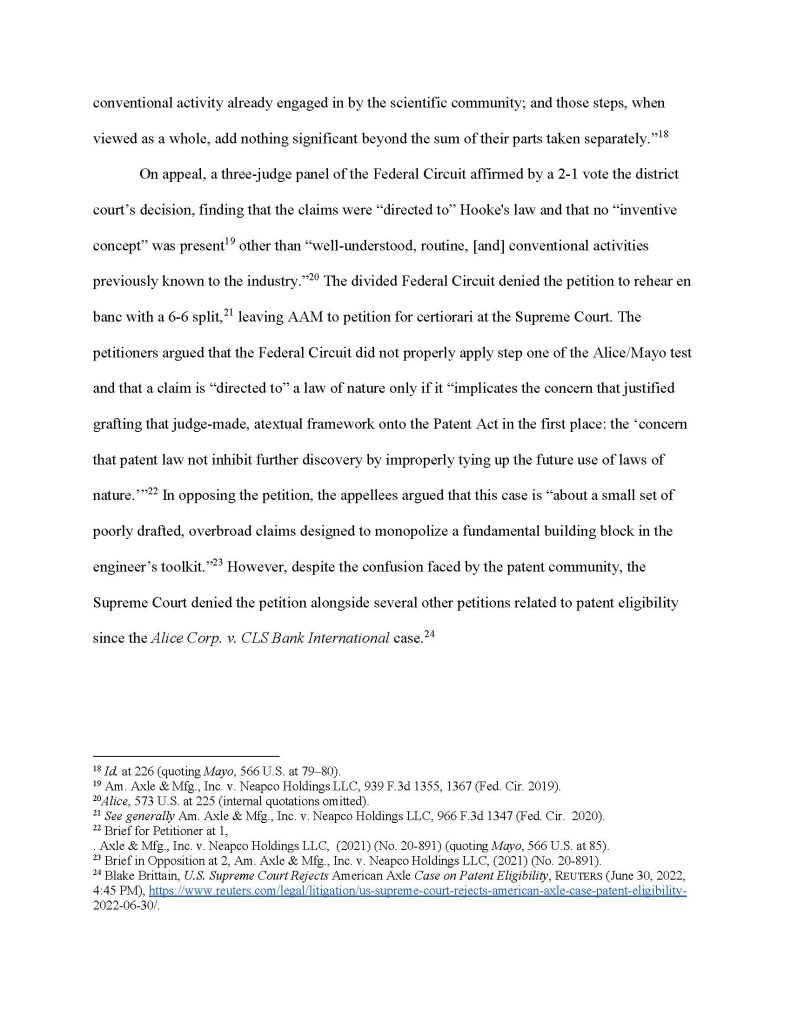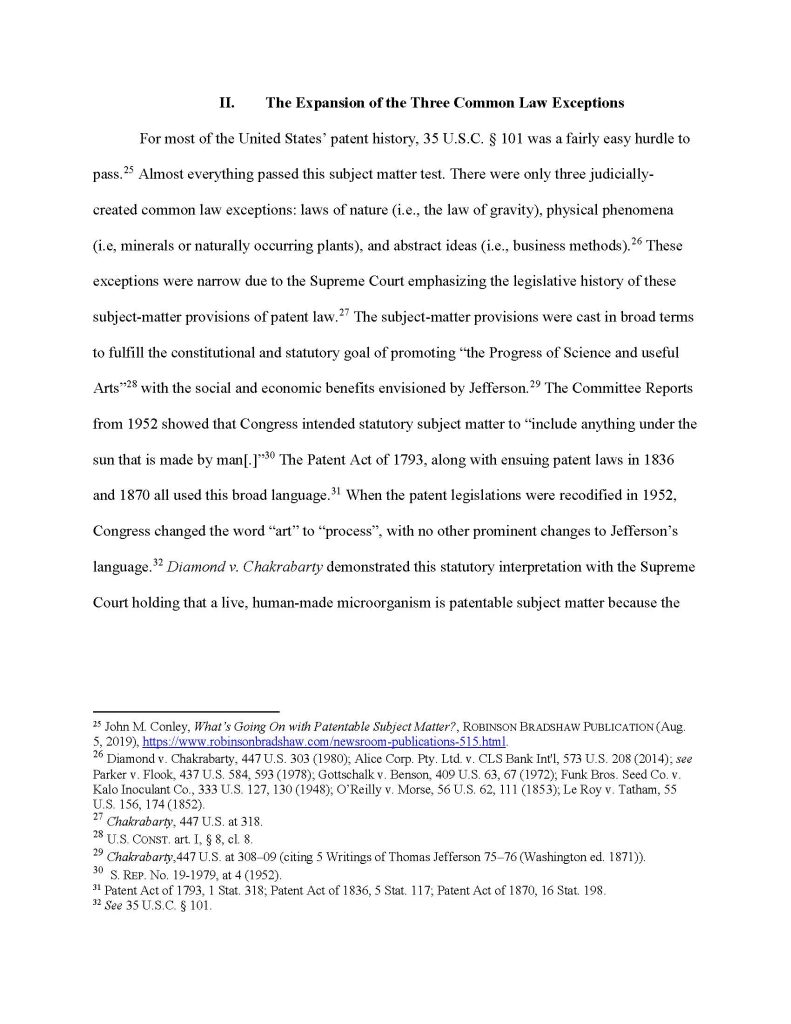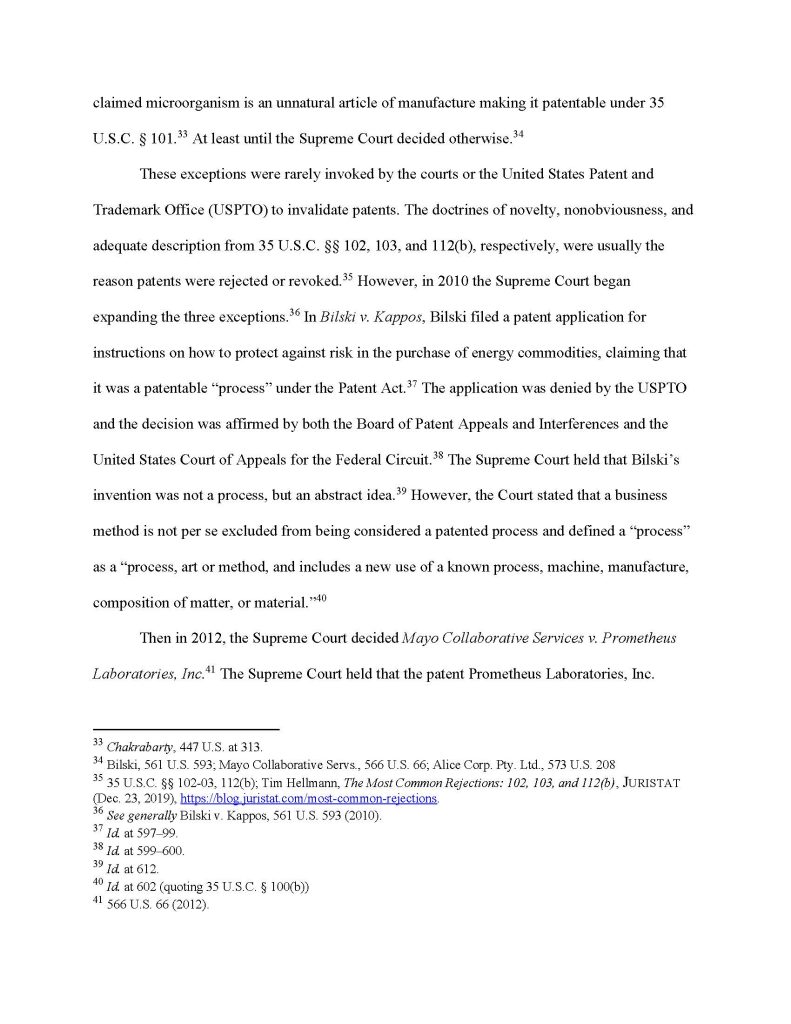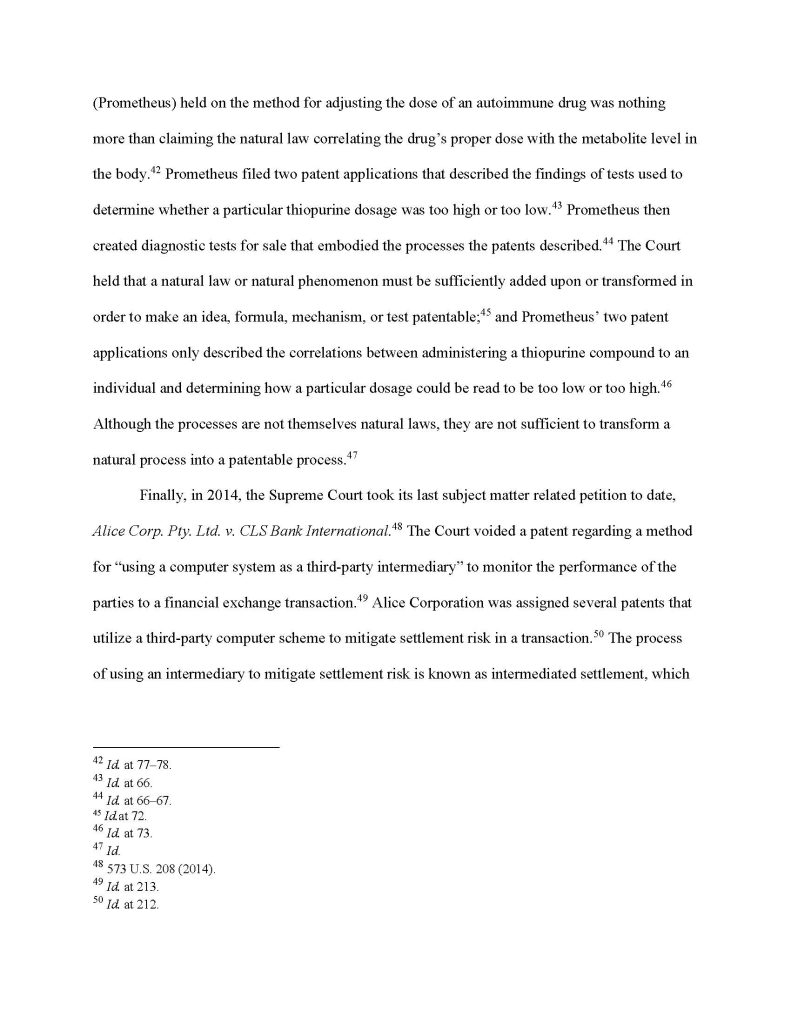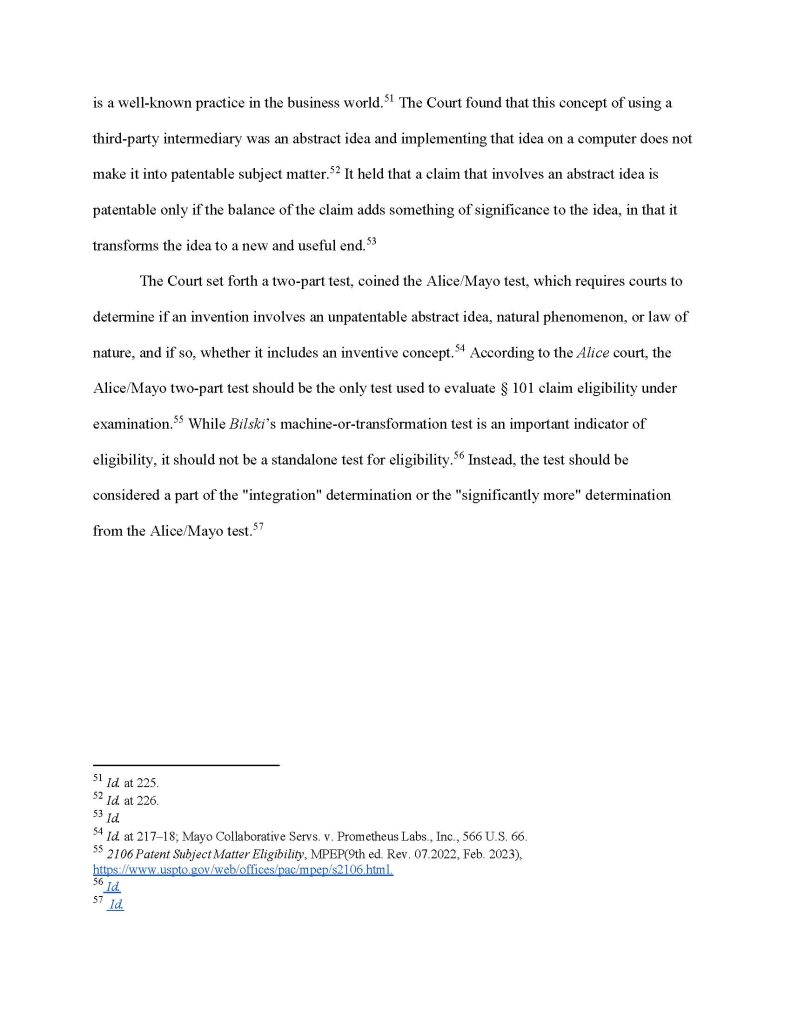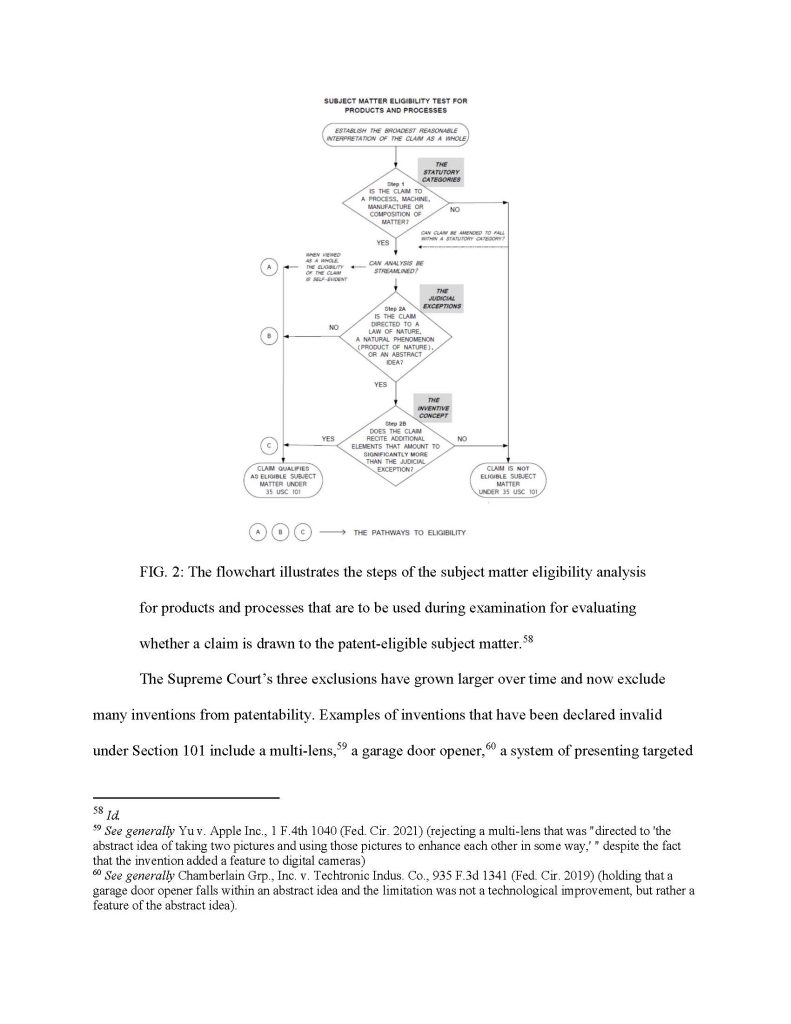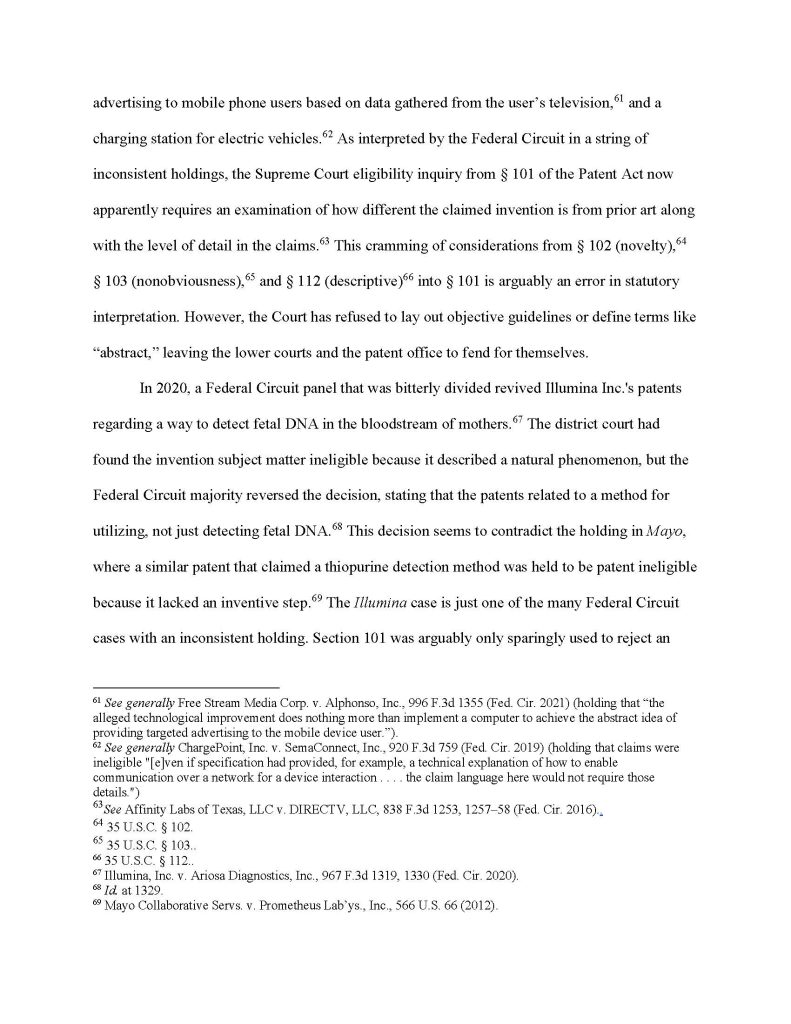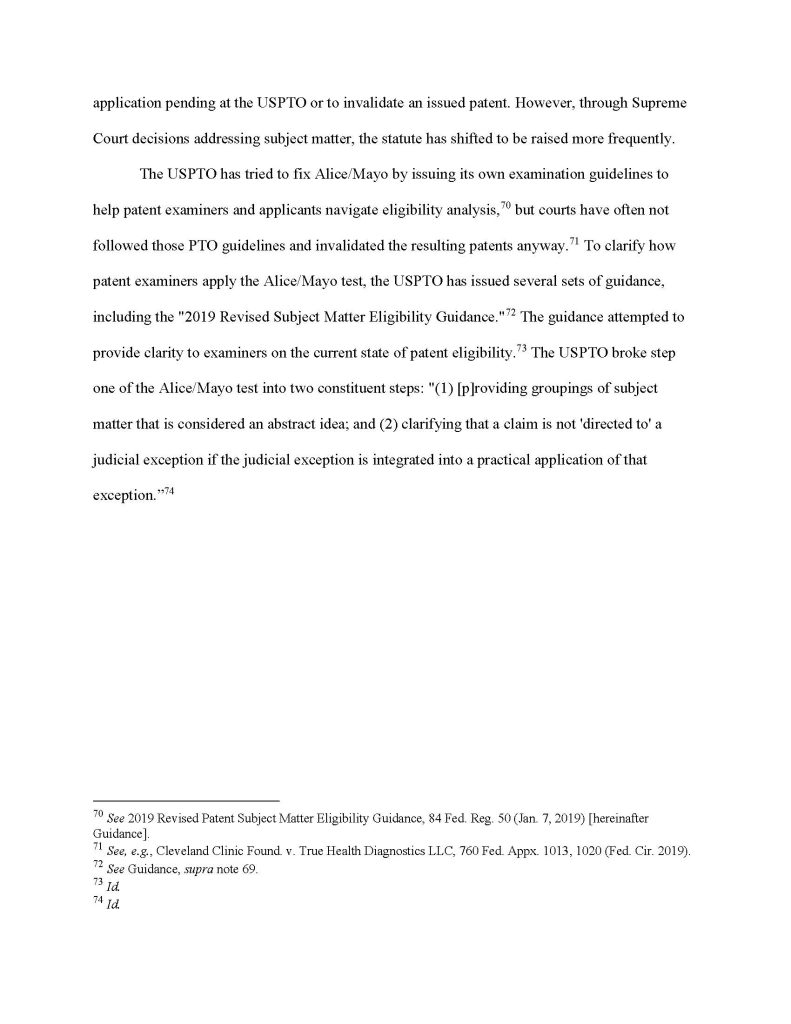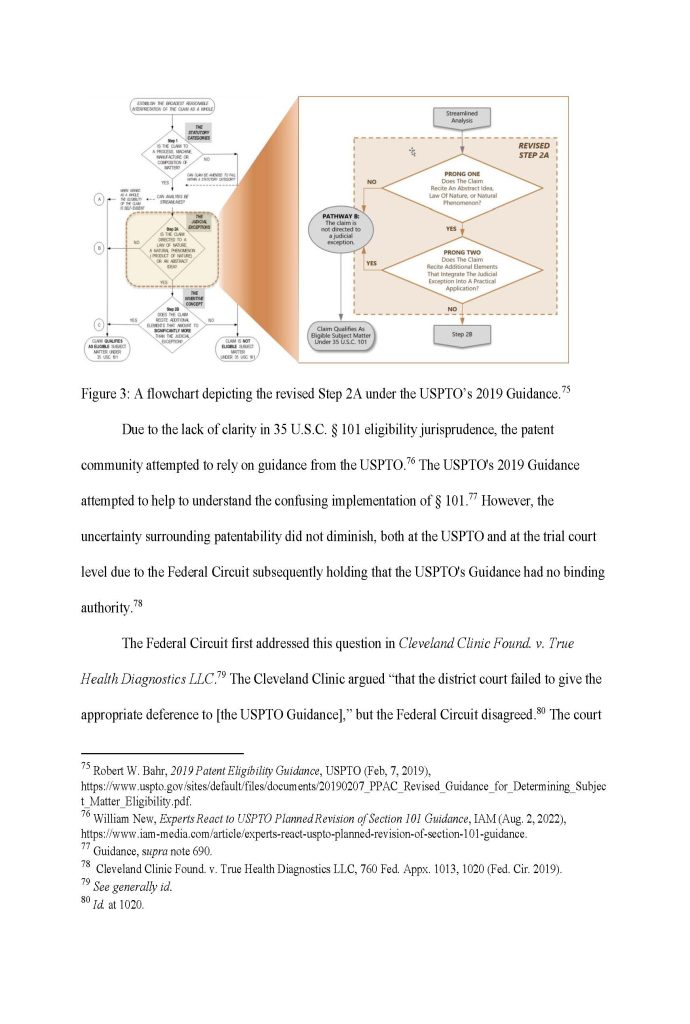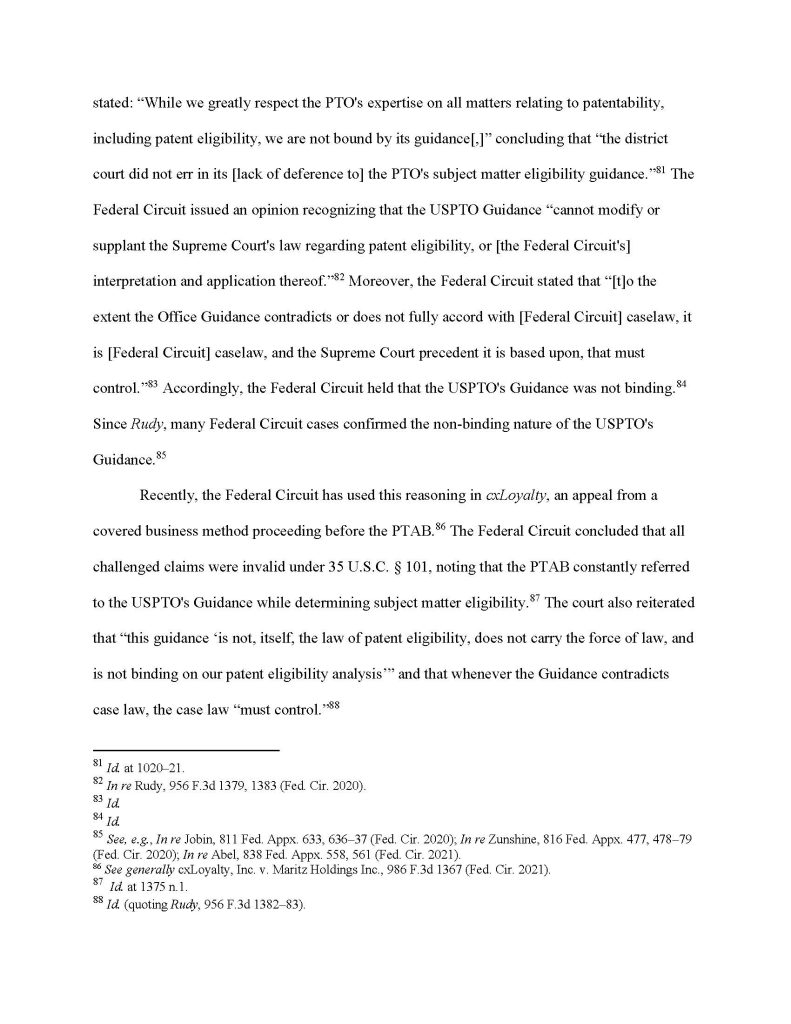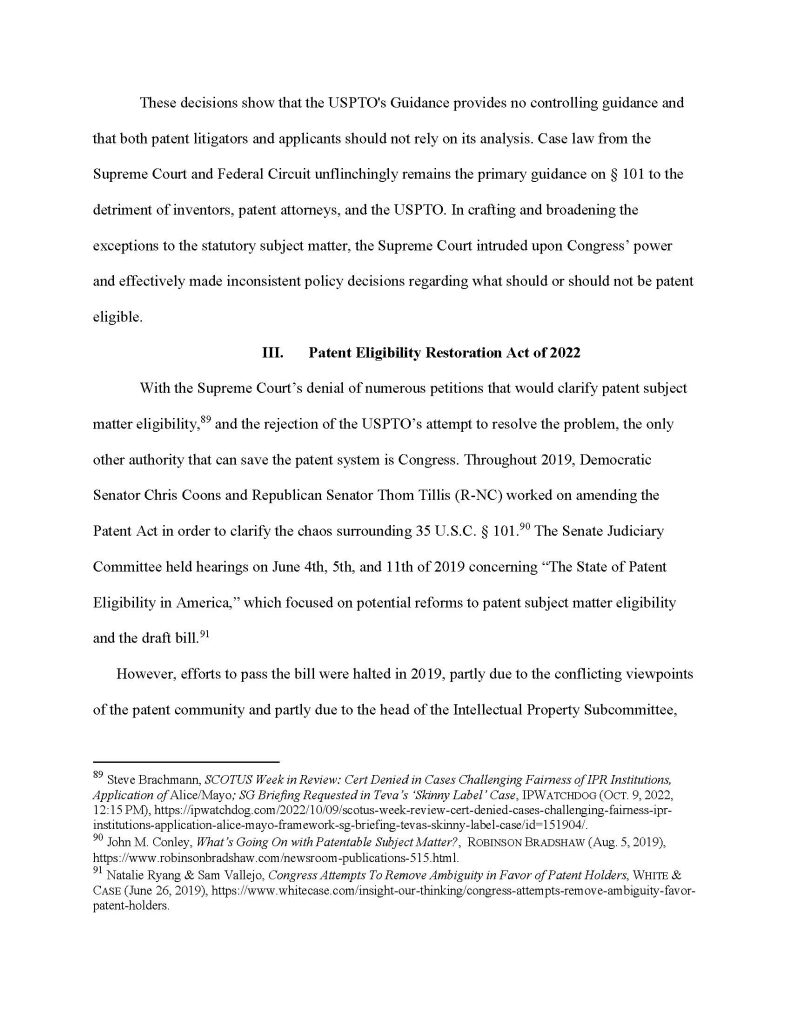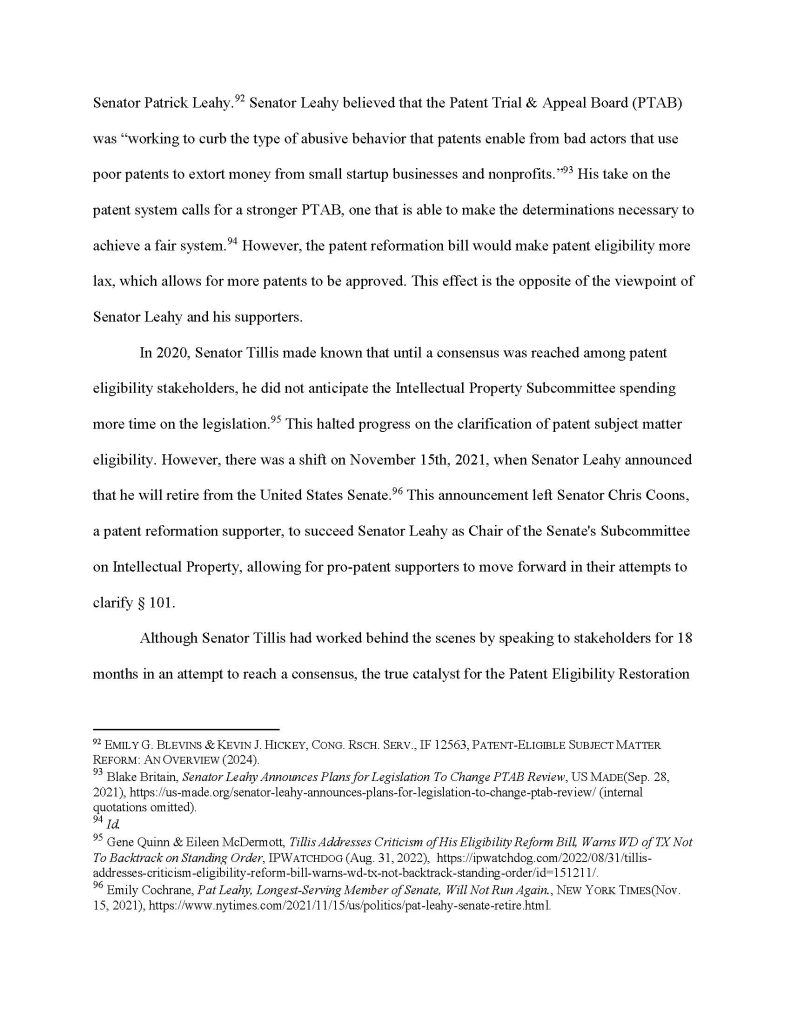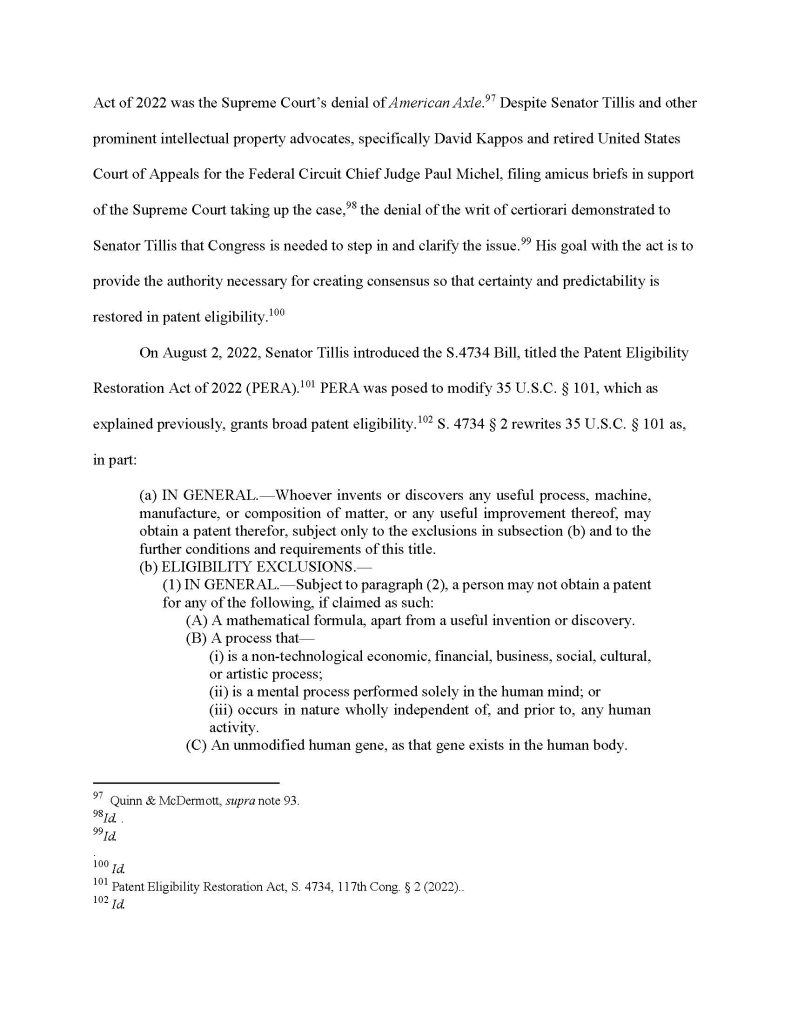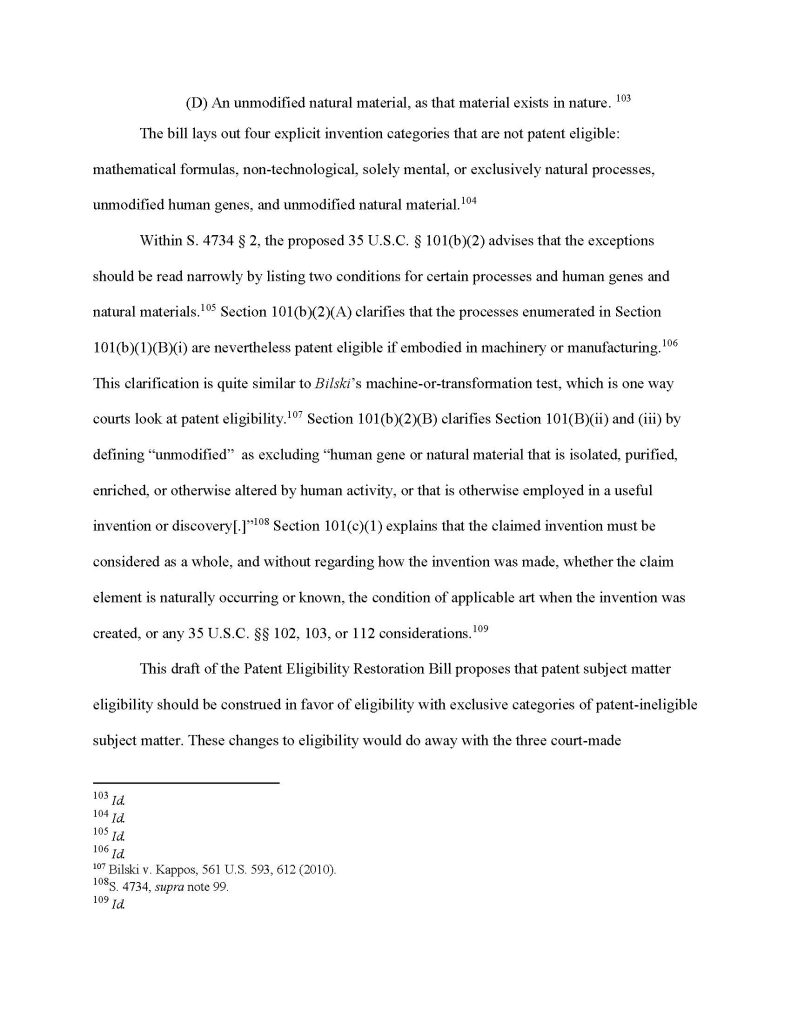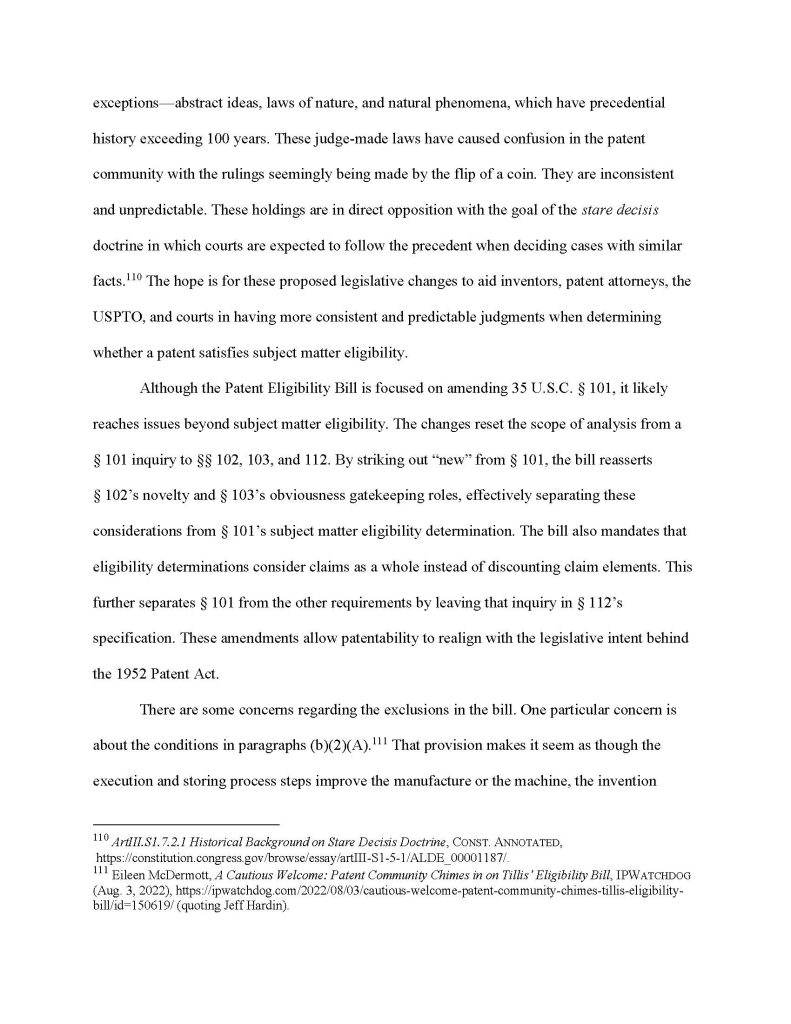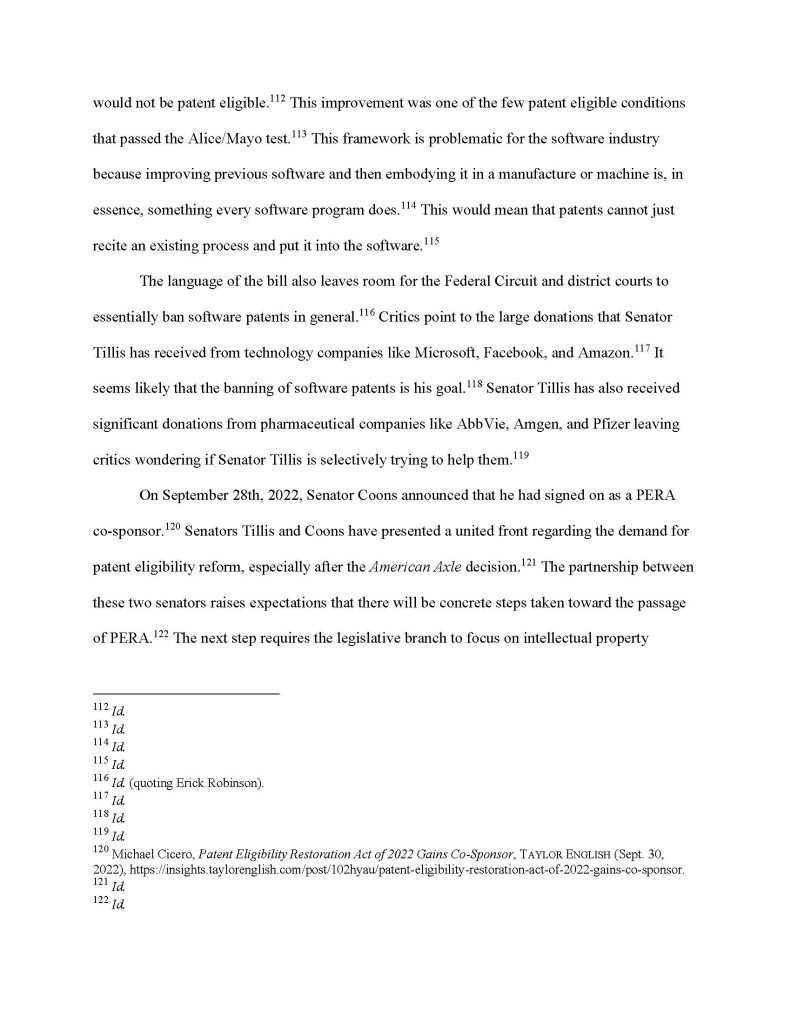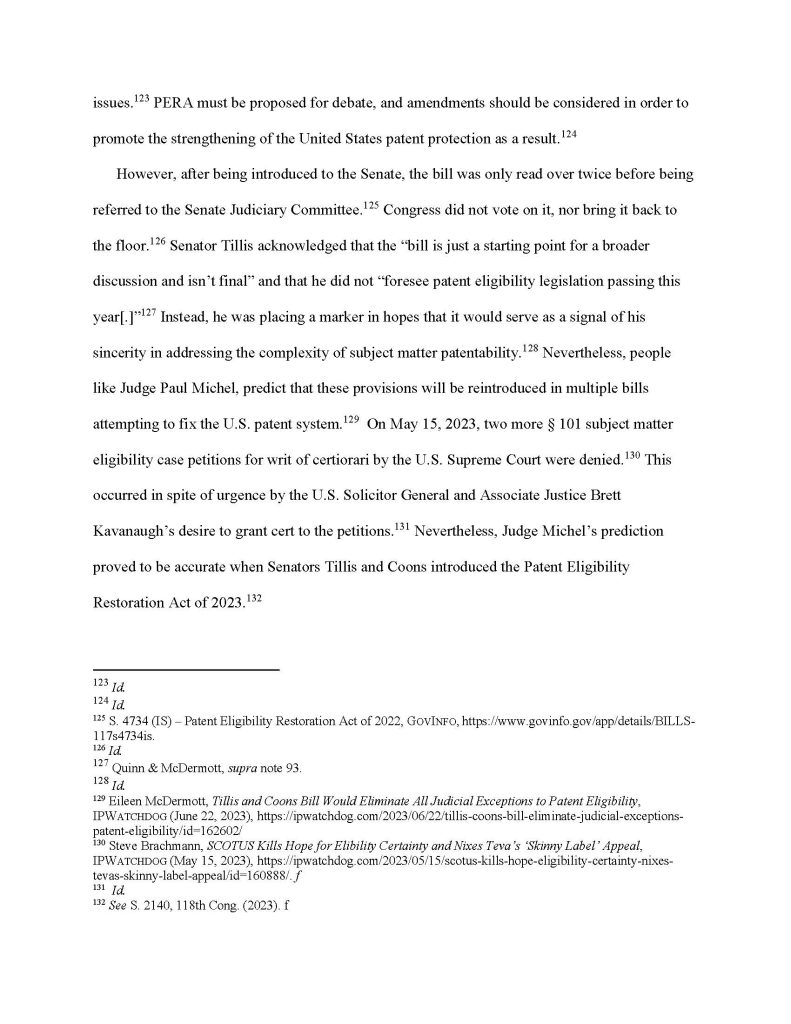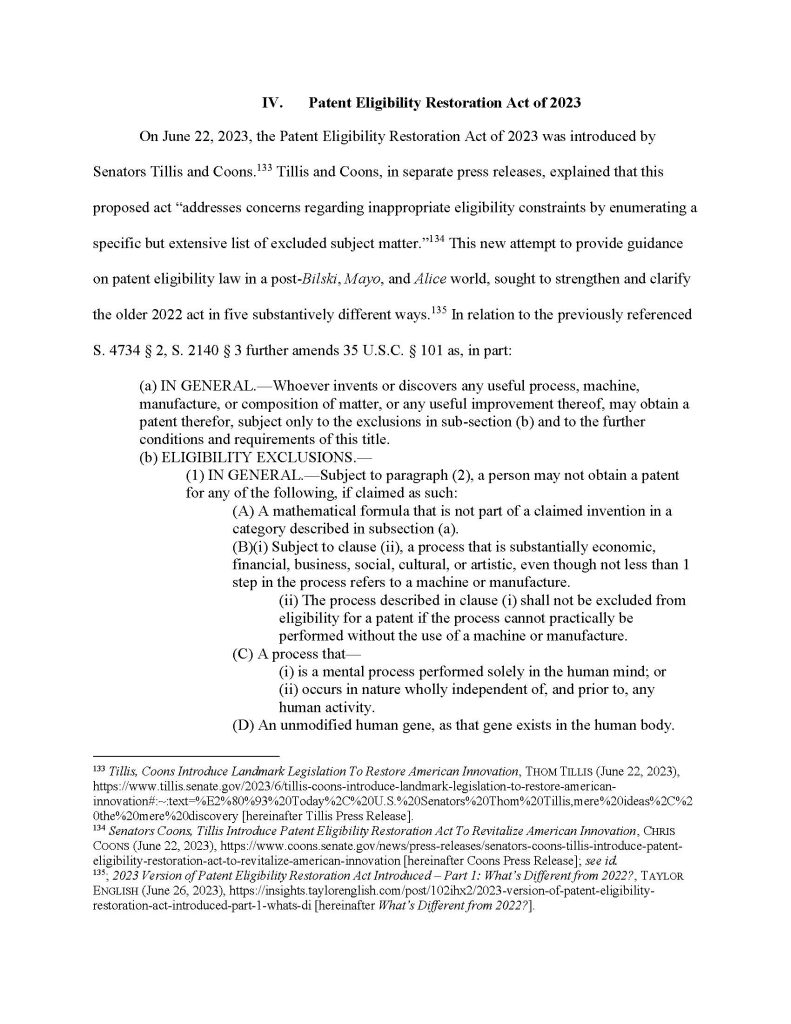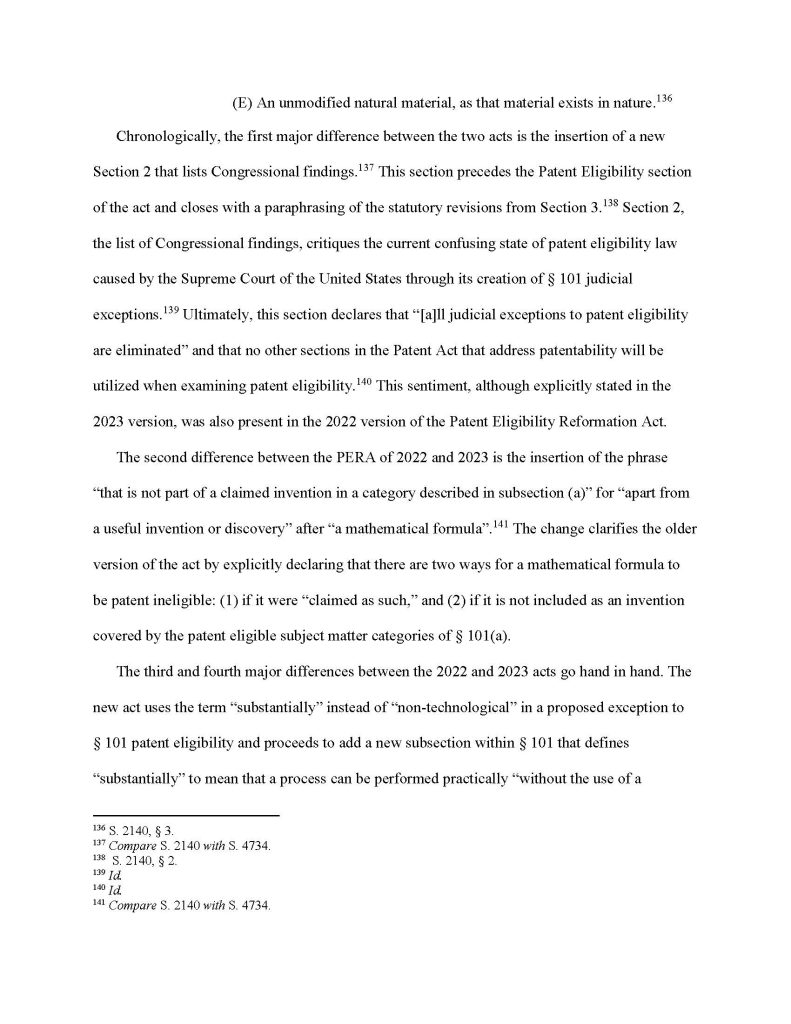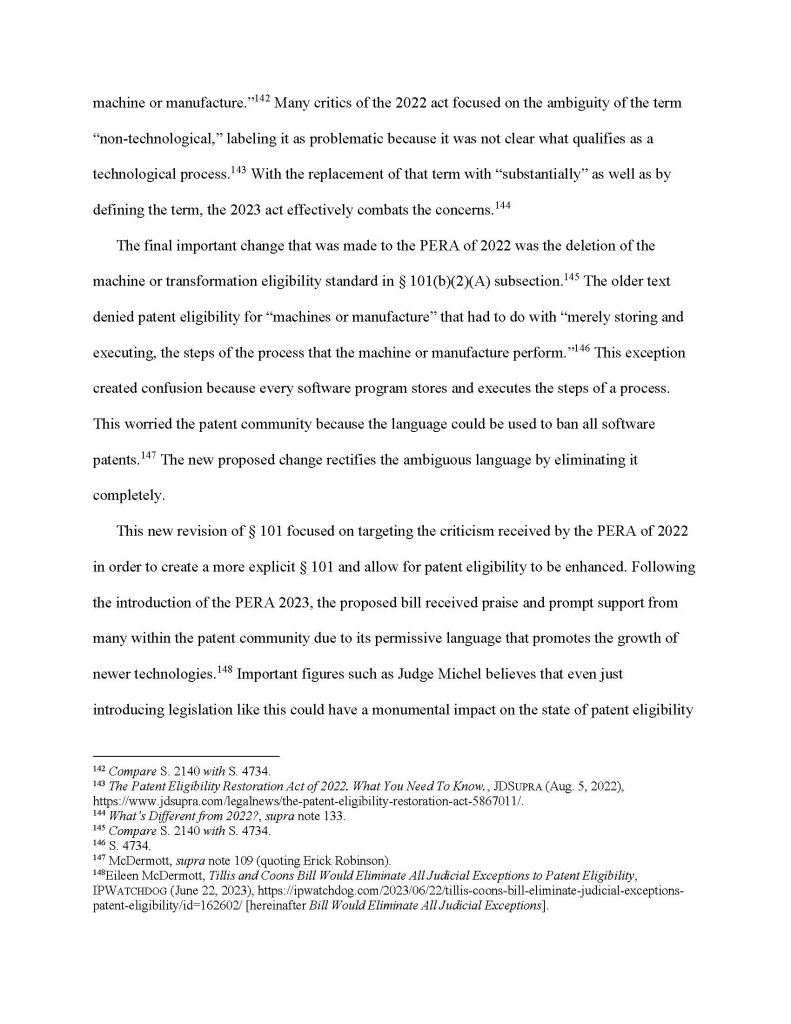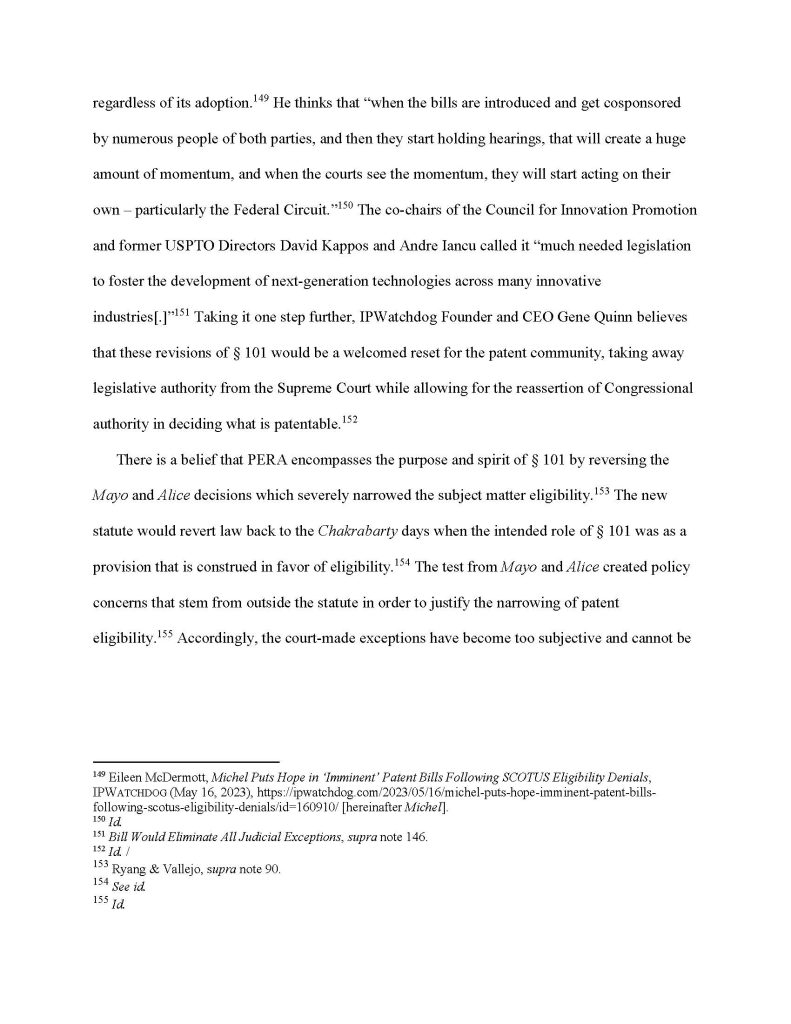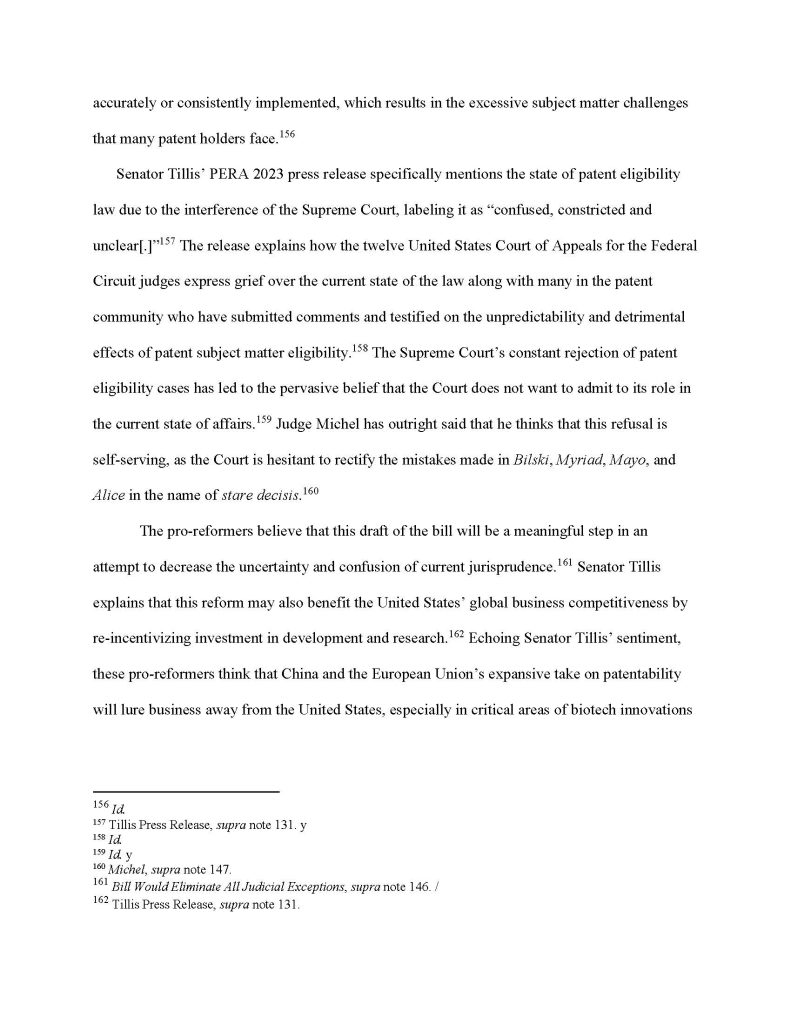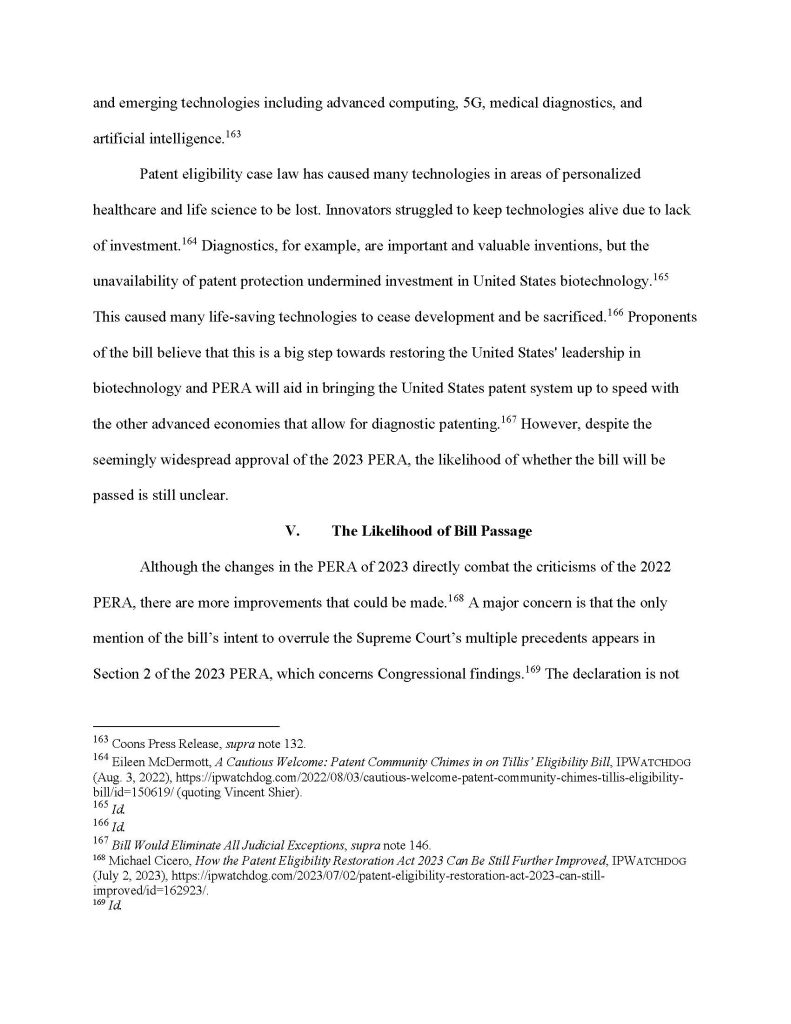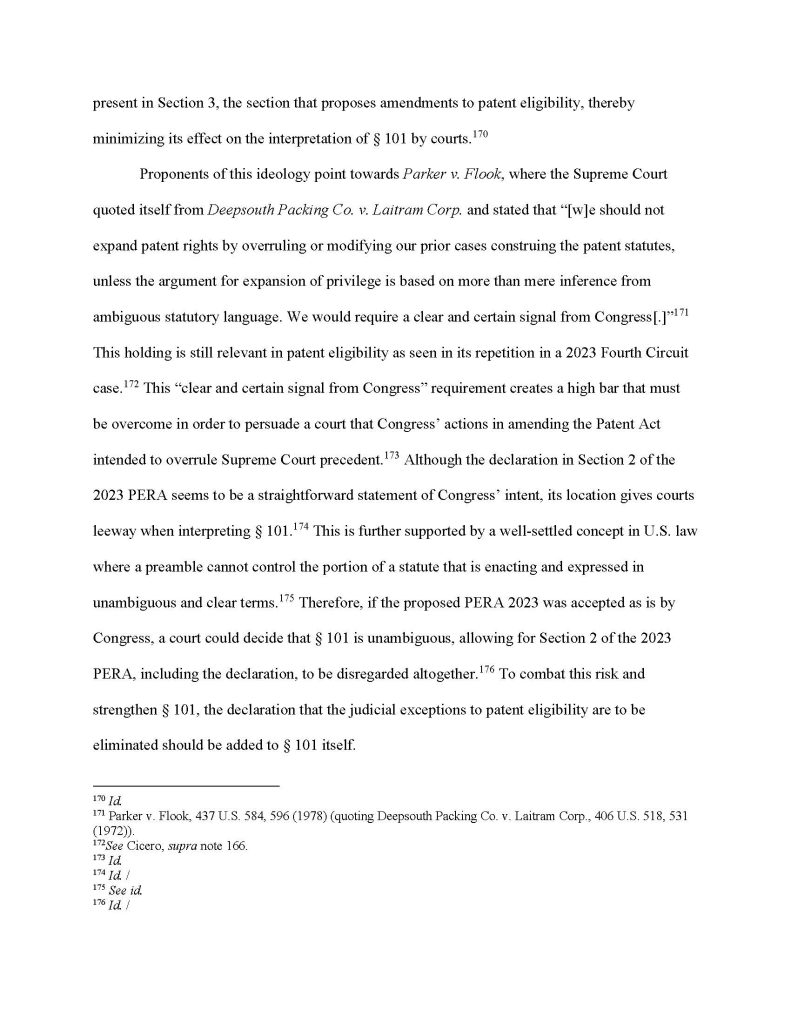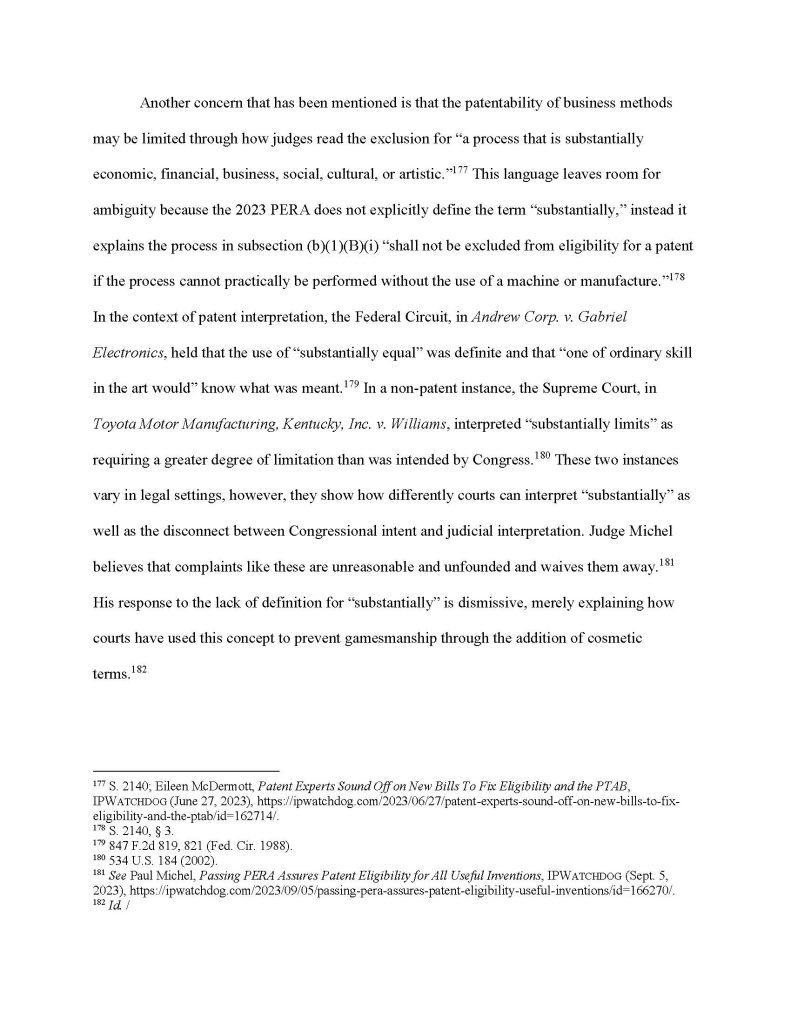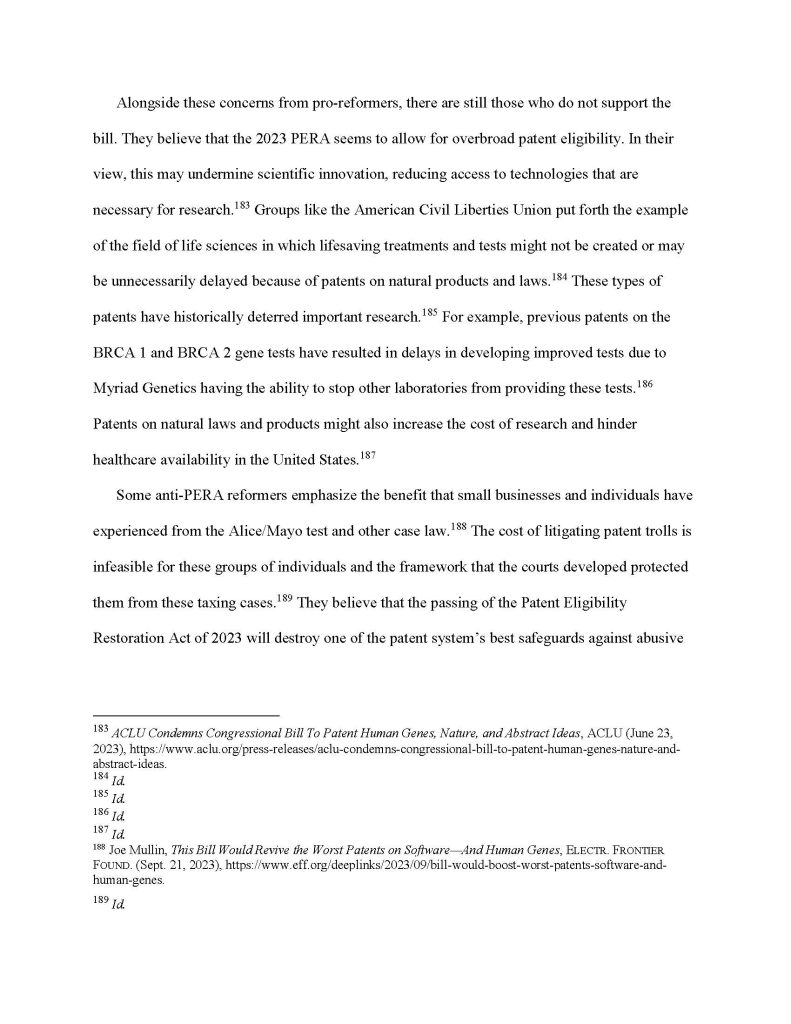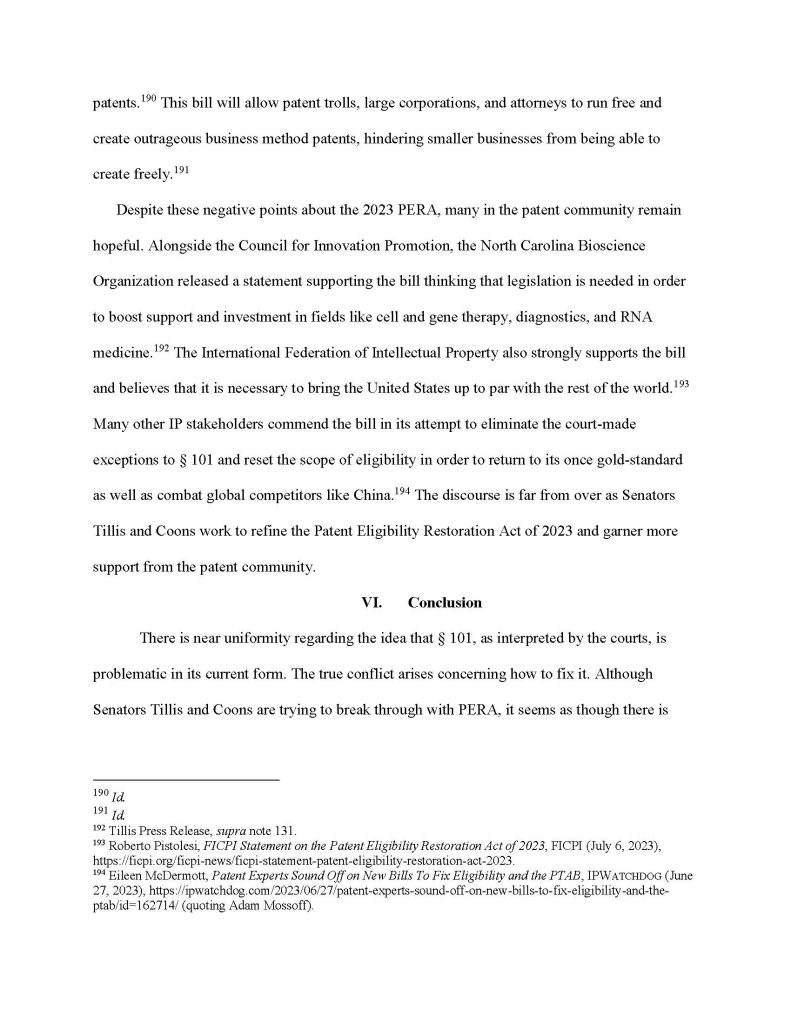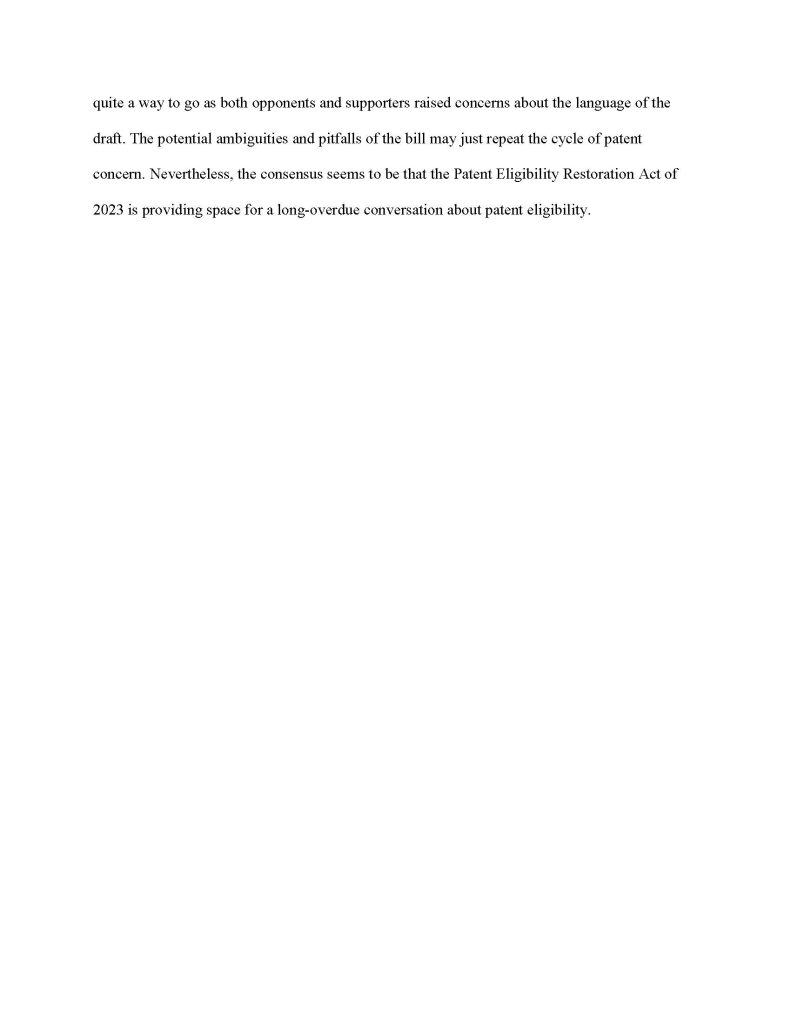By Maha Qureshi
Maha Qureshi is a 3L at Sandra Day O’Connor College of Law at Arizona State University with a strong interest in Law, Science, and Innovation. She is the Associate Editor for Patent Scholarship for The McCarthy Institute and also serves as an Executive Editor for Jurimetrics, the journal of the American Bar Association Science & Technology Law Section and the Center for Law, Science and Innovation at ASU Law. Along with her pursuits in Intellectual Property, Maha has a strong passion for science policy and ethics.
Abstract:
Determining patent eligibility has become very complex over the last fifteen years, primarily due to the rulings of the United States Supreme Court. The Patent Eligibility Reformation Act of 2023 is a bi-partisan attempt at elucidating the patent process. However, similar to earlier proposals, this proposed bill also faces opposition due to conflicting opinions on what the scope of patent protection should be. After laying out the current patent subject matter eligibility environment, the Patent Eligibility Reformation Act of 2022 is explained along with its weaknesses, and then the proposed changes of the 2023 bill are examined. At this point, the new Patent Eligibility Reformation Act can still be further refined, however, there is hope within the patent community for the elucidation of 35 U.S.C. § 101.
Article Link: The Impacts of the Patent Eligibility Reformation Act of 2023 on Patent Subject Matter Validity .pdf

